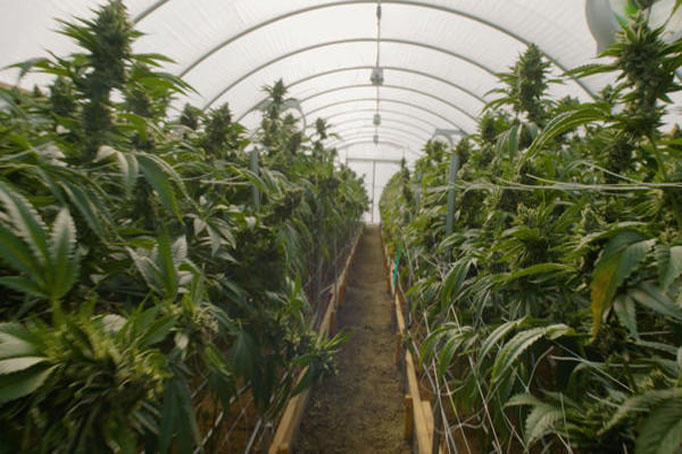The Sacramento Police Department could send members of its SWAT team to combat illegal marijuana grows while the department forms a dedicated group of officers to respond to the criminal activity.
The option is one of several recommendations to help curb illicit weed grows that will be brought to the Sacramento City Council during its Tuesday meeting. The Office of Cannabis Policy and Enforcement will give the presentation, outlining current enforcement efforts in Sacramento that target the criminal operations and offering potential alternatives.
“We need to be able to meet the challenge of eliminating these illegal grows,” said Joe Devlin, who runs the cannabis office. “Our challenge are these illegal residential grows, homes (where) nobody lives.”
Councilwoman Angelique Ashby called on local agencies to develop an “urgent plan of action” within 30 days to combat the illegal grows last month, following the increase in marijuana-related crime.
That included a July 12 incident in which someone drove a car through the garage door of a Meadowview home that police later determined was being used to grow marijuana. Almost two weeks later less than a mile away, police said a vehicle drove through a garage of an empty home also used to grow marijuana.
Devlin estimates there could be 1,000 illegal growing operations in the city. In this year alone, the Sacramento Police Department has responded to 76 cannabis-related robberies, the report said.
Besides an uptick in crimes associated with illegal marijuana grows, including home invasions and robberies, Sacramento Police Department spokesman Sgt. Bryce Heinlein said modifications to grow houses also pose fire hazards to those living inside and nearby.
The illegal grows the department finds usually involve more than 300 plants and are set up in an environment intended to mimic outdoor conditions, Heinlein said. To achieve that, growers sometimes have to remove walls, as well as install lights and watering equipment, which means modifying the home’s electricity to be able to power the equipment. Those modifications are done without permits or city inspections.
“The problem needs to be dealt with and the message needs to be that it will not be tolerated in the city of Sacramento,” Heinlein said in an email about the grows.
The council report said the city’s fire department has handled 11 incidents associated with marijuana grows since August 2015.
Sacramento allows residents 21 and older to grow marijuana for personal use in accordance with last year’s passage of Proposition 64. Both medical and recreational users can grow the plant within the city limits in indoor spaces no larger than 400 square feet, Devlin said.
The city isn’t concerned with residents who are growing marijuana legally, but rather those who are growing it in large quantities for commercial purposes, something that is not allowed under Proposition 64, Devlin said.
To sell cannabis in Sacramento legally, businesses must apply and pay for two separate permits with the city.
Prices for those permits, which cost thousands of dollars each, were finalized by the Sacramento City Council earlier this year, and were established, in part, to help pay for additional enforcement efforts to combat the illegal marijuana grows, according to the Office of Cannabis Policy and Enforcement report.
The report said the city is receiving fewer permits than anticipated, causing officials to delay hiring enforcement staff.
“That’s why we haven’t filled all these positions that have been authorized because we haven’t received as much money,” Devlin said.
The Sacramento Police Department has three dedicated officers who primarily focus on marijuana grows, Heinlein said.
Those officers send warning letters to tenants and homeowners who may be illegally growing marijuana in their homes, giving them a short period to fix any issues. The City Attorney’s Office can step in and issue inspection warrants, giving building inspectors the ability to go inside the homes to see if they are up to city codes.
“With over 800 residences suspected of illegally growing, it is difficult for the officers to make any substantial impact with our current staffing,” Heinlein said.
The Sacramento Police Department said in the report that using SWAT officers was one option for enforcing the illegal grows, though noted the team is an important resource in planned protests and has a primary role of serving high-risk warrants and attending required monthly trainings.
The department said it could also create a dedicated team of three sergeants and a dozen officers, though that would mean pulling resources from existing patrols.
The City Manager’s Office suggested using the SWAT team for a period of three months, followed by pulling officers from patrols if needed, according to the report.
Additionally, the city’s cannabis office is drafting an ordinance to allow a maximum of six marijuana plants per household, replacing the current 400-square-foot limit. The ordinance would additionally impose a $500 fine for each plant more than the six allowed.
credit:sacbee.com




